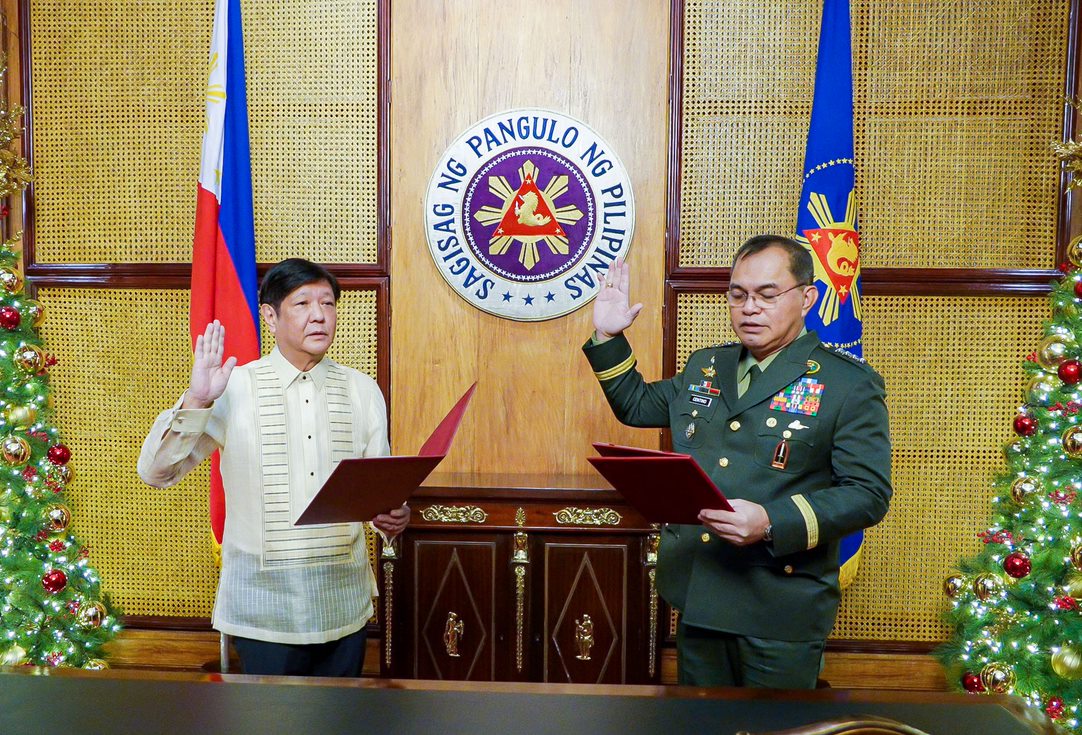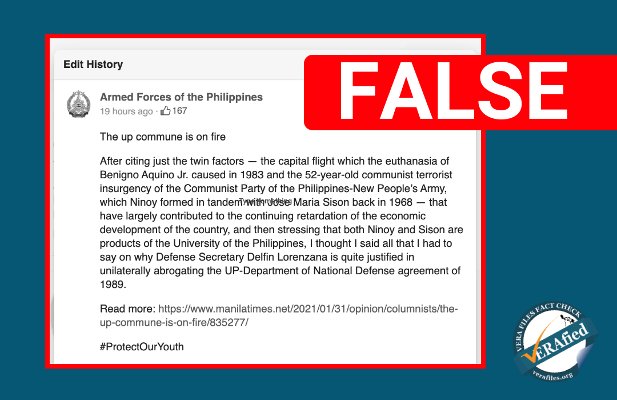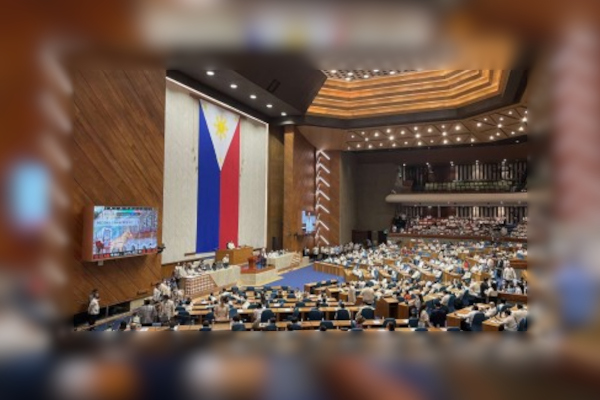President Ferdinand Marcos Jr. did not break the law when he returned Gen. Andres Castor Centino as chief of staff of the Armed Forces of the Philippines (AFP) five months after removing him from the same post.
Republic Act 11709, which aims at further professionalizing the military, provides for a three-year fixed term for AFP chiefs and other military officers. Signed by then president Rodrigo Duterte on April 13, 2022, the law should have assured Lt. Gen. Bartolome Vicente Bacarro, Marcos’ first appointee as AFP chief, to serve until August 2025. But the same law says the covered officers’ tour of duty begins on the date the appointment is signed and “shall be for three consecutive years unless sooner terminated by the president.”
While the president’s decision to reappoint Centino to the same position he vacated in August 2022 does not violate the law, it creates uncertainties which could have given rise to rumors that circulated online over the weekend about an uprising in the military. It means Centino is also not assured of keeping the post until January 2026.
The fixed three-year term covers the chief of staff, vice chief of staff, deputy chief of staff, commanding generals of the Army, Air Force and Navy, inspector general, and chief of the unified commands.
RA 11709 was supposed to put an end to the “revolving door” policy in the military that gave rise to the AFP chiefs serving for only a few months before mandatory retirement. But Marcos chose to keep the practice and disregard the three-year fixed term under the law.
Duterte appointed 11 AFP chiefs in six years, the same number that former president Gloria Macapagal Arroyo appointed in nine years.
If the three-year term is observed, Marcos would be appointing only two military chiefs, in 2022 and 2025.
When Marcos appointed Bacarro to the military top post in August last year, the Tarlac native was just a month shy of reaching the mandatory retirement age of 56. Now, the Tacloban City-born Centino is less than a month away from turning 56. Prior to his new appointment, Centino had a pending nomination as the Philippine ambassador to India and Nepal.
Was the decision to bring back Centino to the AFP top post a realization that replacing him five months ago was a mistake? Was Centino not confident of getting confirmation for his nomination to a diplomatic post?
We can only speculate; no reason has been given for the move.
RA11709 was aimed at strengthening the merit system of the AFP and ensuring continuity of programs and policies. When Marcos replaced the Duterte-appointed Centino in August last year and named Bacarro in his stead as AFP chief, and then returned him to the same post after five months, he disregarded the good intentions and policies laid down in the law.
Many described Centino’s appointment as surprising, others considered it bizarre. That makes Centino both the predecessor and successor of Bacarro, a Medal of Valor awardee.
Coinciding with last Saturday’s change of command at the AFP headquarters in Camp Aguinaldo, Quezon City was the circulation of at least two supposed memorandums from the regional offices of the Philippine National Police (PNP) in the Cordillera and Zamboanga, placing the organization on full red alert status “in view of the resignation of all personnel in the Department of National Defense.”
Both the AFP and the PNP dispelled it as “fake news.” Col. Redrico Maranan, PNP public information officer, said the police is “on heightened alert status because of the Feast of the Black Nazarene [on Monday].”
The filing of courtesy resignations of top police officials and the sudden change of command at the AFP fueled rumors of a destabilization plot against Marcos. It was purportedly an expression of disappointment over the uncertainties that Centino’s appointment had created.
Centino’s appointment was revealed to the public only after he took his oath before Marcos on Friday. Centino was commanding general of the Philippine Army from May to November 2021 and AFP chief of staff from Nov. 12, 2021 to Aug. 8, 2022. He replaced then AFP chief Gen. Jose Faustino Jr., also a former Army chief, who had served for four months from July 30 to Nov. 12, 2021. Faustino is now senior undersecretary and officer in charge at the Defense department.
While he has already appointed two AFP chiefs in the first seven months of his administration, Marcos has yet to name secretaries of the Defense, Health and Agriculture departments. Faustino and Undersecretary Maria Rosario Vergeire are mere officers in charge of the Defense and Health departments, respectively. They are not even acting secretaries with signing and appointing authority. Marcos concurrently serves as secretary of agriculture.
No reason has been given for keeping Faustino and Vergeire as mere OICs. There were speculations that Marcos must be waiting for the one-year ban on losing candidates to lapse before appointing Defense and Health secretaries.
“As for agriculture, I think that the problem is severe enough that I have decided to take on the portfolio of secretary of Agriculture, at least for now,” Marcos said in a press briefing before assuming the presidency in June last year.
He said he would stay on “at least until we can re-organize the Department of Agriculture in the way that will make it ready for the next years to come.” He said the move should “make it clear to everyone what a high priority we put on the agriculture sector.”
“We’re going back to basics and trying and we will rebuild the value chain of agriculture. And that is why I thought it is important that the president take that portfolio so that not only to make it clear to everyone what a high priority we put on the agriculture sector,” Marcos said.
But look how the prices of agricultural products have risen in the last six months. The price of onion has gone up to as high as P800 per kilogram during the Christmas season. It has started going down, but still high at P580 per kilogram in public markets.
He changed the name of the Presidential Communications Operations Office to the Office of the Press Secretary in June and then to the Presidential Communications Office in December. Again, no reason has been given publicly for the name change.
These are just some of the instances which show that the indecisiveness which creates uncertainties and restiveness are not unusual in the current administration.
The rumors circulating over the weekend should not be dismissed outright as “fake news.” As the idiom goes, where there is smoke, there is fire. There could indeed be disappointments over Centino’s appointment that has broken Bacarro’s three-year term as AFP chief. Let’s wait and see how Marcos will handle this.
The views in this column are those of the author and do not necessarily reflect the views of VERA Files.
This column also appeared in The Manila Times.




